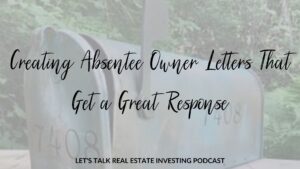 The second part of the lease option is the actual “option contract”. This paperwork gives the person leasing the property the right to purchase it at a later date for a specified amount of money. There is more than one way that this type of deal can work. However, there is usually a specified amount of time which is typically 1-5 years during which the person leasing the property can live in the house. At the end of the specified time the lessee can purchase the house. Most real estate investors prefer a time frame of 18 to 24 months for the person to refinance and buy the house.
The second part of the lease option is the actual “option contract”. This paperwork gives the person leasing the property the right to purchase it at a later date for a specified amount of money. There is more than one way that this type of deal can work. However, there is usually a specified amount of time which is typically 1-5 years during which the person leasing the property can live in the house. At the end of the specified time the lessee can purchase the house. Most real estate investors prefer a time frame of 18 to 24 months for the person to refinance and buy the house.
During this time they are living in the house there is an opportunity for them to work on cleaning up their credit and to save some additional money for a down payment. If these steps have been taken and they have paid their rent on time during the option period, they should have no problem getting a traditional mortgage. Paying on time and just being good tenants in general will allow you to give them a good reference which will be an added bonus for them.
Changing Your Thinking
Understanding the basics of lease options is important, but remember these folks are not “just renters” but are potential “home owners”. They are typically taking care of small repairs and routine maintenance (just like a home owner) so this saves you time and money. In most cases they will take better care of the property than they would if they were just renting.
As a real estate investor lease options are so much more attractive than renters for many reasons. Rather than getting a security deposit, it is typical to get a much larger lease option fee. This option fee is typically several thousand dollars depending on the size of the house and is usually non refundable. Some investors look for a set amount of say 10% of the value of the house. However, in a slow economy you may not be able to get that much for an option fee. But it’s fair to say that you can get substantially more than a security deposit. If the potential buyers exercise their option to purchase the house then the option fee is applied toward the down payment. If they decide not to buy the house and just walk away then the option fee is yours to keep. By not purchasing the house they will have essentially just been renters and you have made a decent amount of extra money. It’s a win, win either way.
Part 1 – Understanding Lease Options
If you missed part 1 of this article you can read it HERE…..








